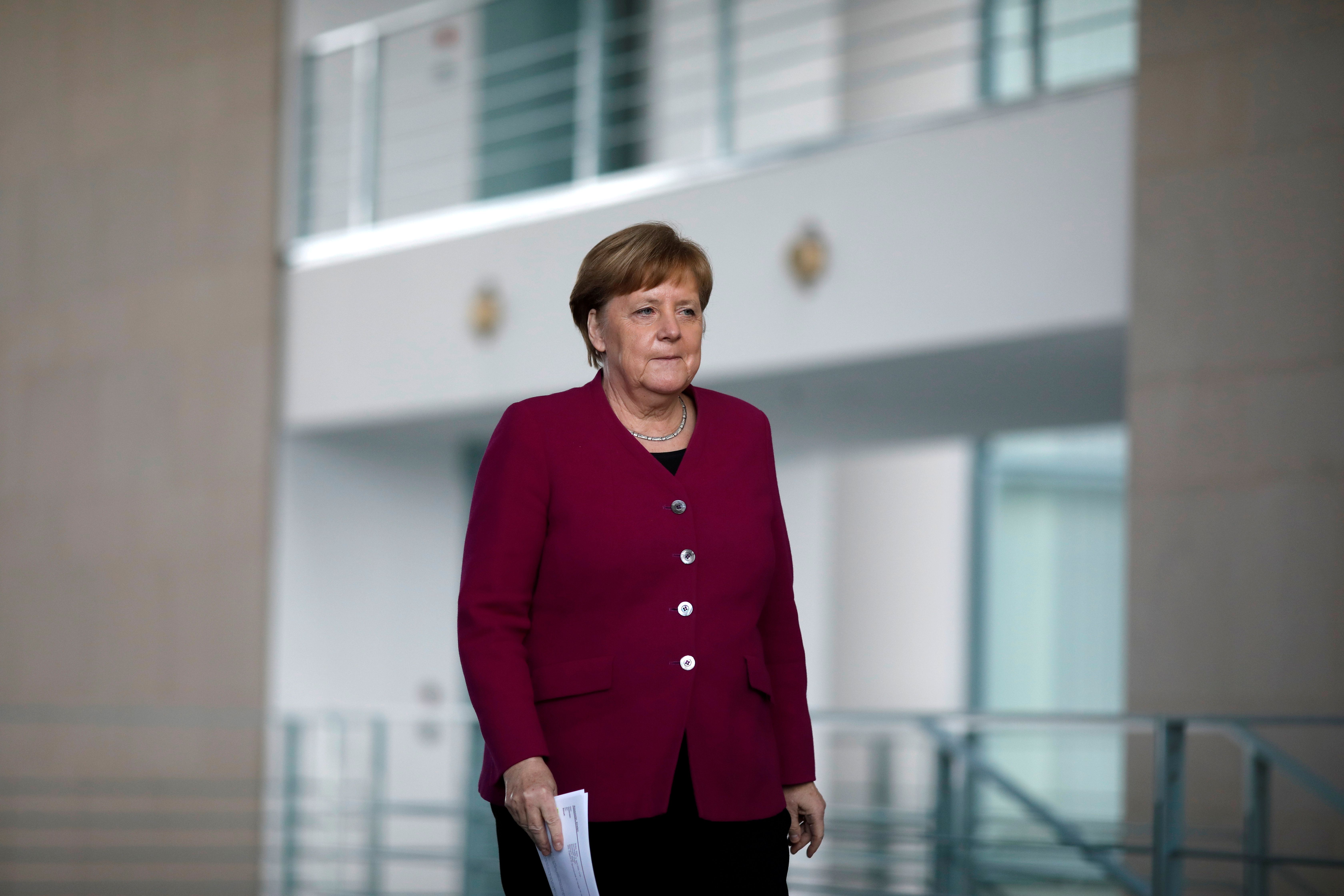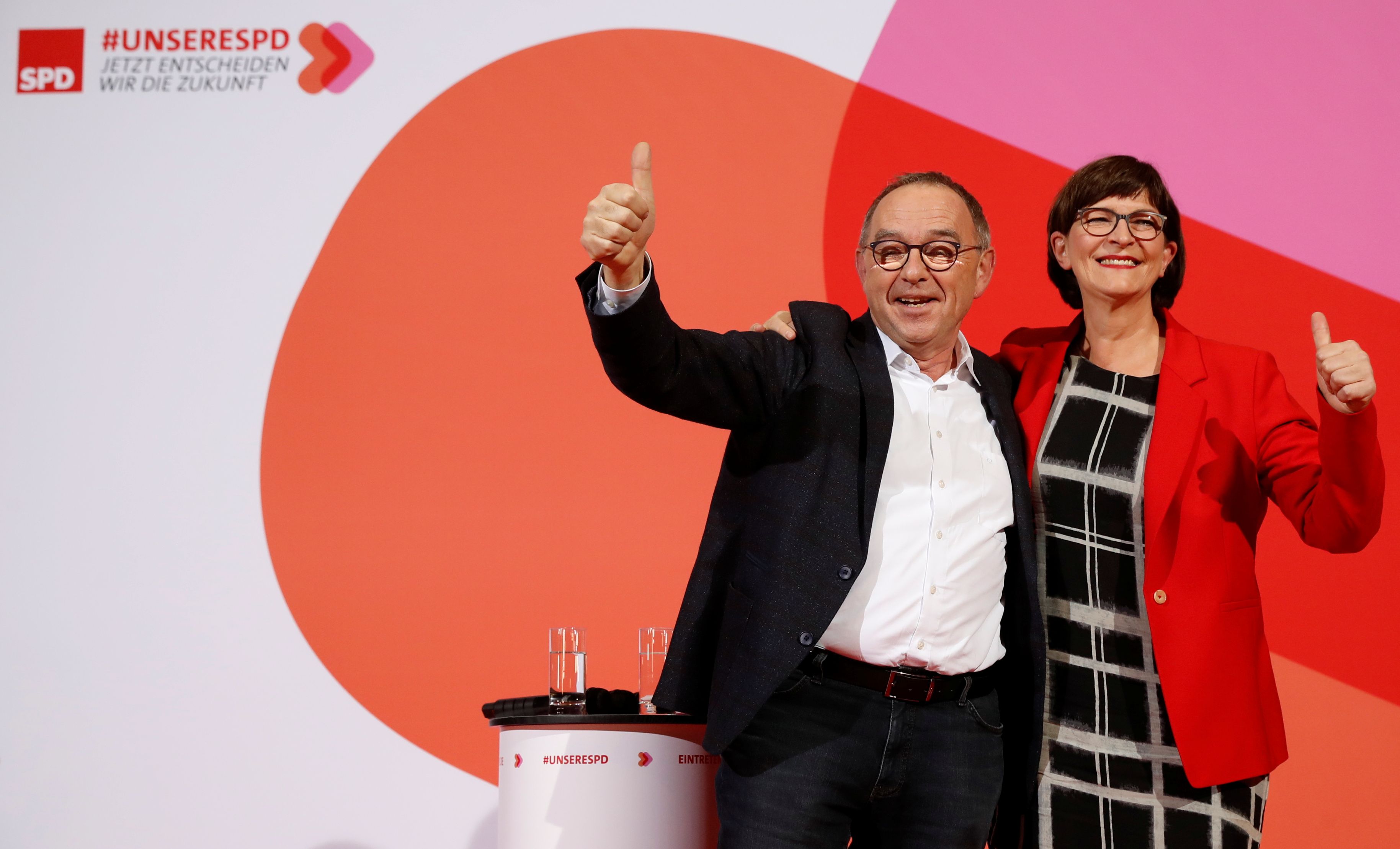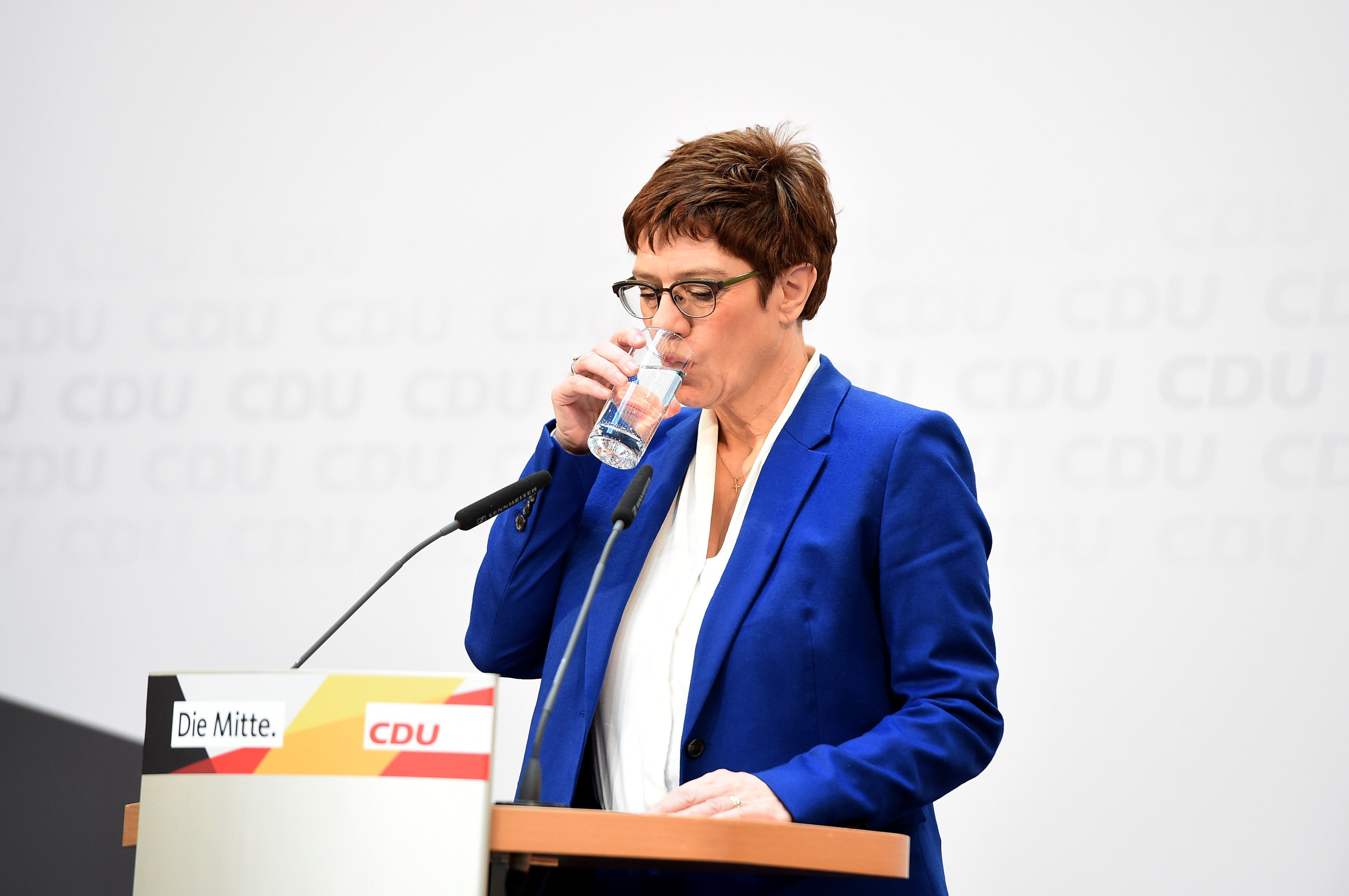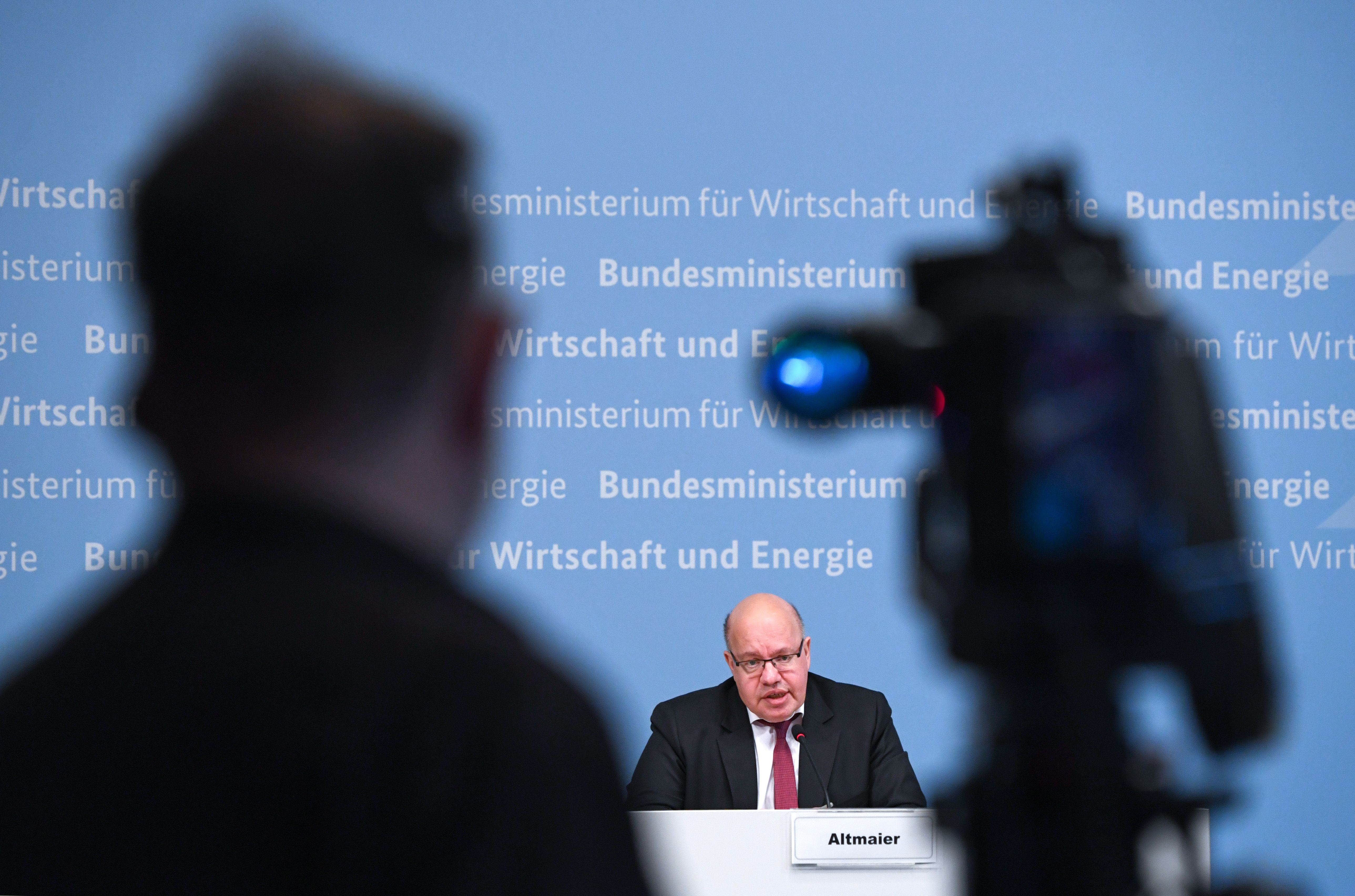The Government Gains: The German Political Scene during the COVID-19 Pandemic

Since its creation in March 2018, the CDU/CSU-SPD government has been shaken by numerous disputes, which resulted in low levels of satisfaction with the work of the federal authorities; according to a survey by the Infratest dimap institute in February, just 32% of the respondents were satisfied with the grand coalition. This was reflected in falling support for the Christian Democrats and Social Democrats, whose polling at the beginning of March fell, respectively, to 27% from 34% in March 2018, and 16% from 18%. However, the outbreak of the COVID-19 pandemic has forced the CDU/CSU-SPD government to face the new challenges, and it is successfully dealing with them, at least for now. This translates into an increase in satisfaction with the federal authorities (72%) and Christian Democrats, which at the beginning of April were at 35–38%.
Federation in the Face of the Crisis
The increase in support for the government was influenced by Germans’ support for the actions taken in the fight against the pandemic; a survey by the Forschungsgruppe Wahlen Institute published on 9 April showed that 74% of respondents assess the measures taken as adequate. Also, 73% of respondents said that responsibility for the management of the crisis should rest with the federal authorities. This means that Germans positively assess the coordination of actions with the Länder authorities by the government in Berlin, necessary due to regional differences in the anti-pandemic restrictions in Germany. The federal states have broad powers in areas such as healthcare and public safety. To harmonise the basic methods of combating COVID-19, Chancellor Merkel and the prime ministers of the federal states established a common catalogue of restrictions on mobility and access to shops and services for all regions of Germany. Also, the Bundestag and Bundesrat adopted an amendment to the “Act on the Prevention and Combating of Infectious Diseases” granting the federal health minister the right to limit international passenger transport and to allocate medicines and medical resources through regulation. The distribution of financial aid by the government to mitigate the effects of the accompanying economic crisis also was granted to the federal authorities. These include non-repayable subsidies and interest-free loans for entrepreneurs totalling as much as €1.2 trillion.
The measures taken by prime ministers managing the federal states are also important. The most prominent among them is Markus Söder, the prime minister of Bavaria, the largest state and the one most affected by COVID-19—as of 14 April, there had been 33,500 cases and 872 deaths reported in the state. To salvage Bavaria’s economic potential, which ordinarily accounts for 18% of Germany’s GDP, the authorities decided to implement an aid package supplementing federal support and amounting to €60 billion. At the same time, Bavaria stands out from the other regions as the one with the most restrictive measures and speed of their implementation: it was the first to decide to close schools and kindergartens and introduce a state of disaster. Such actions are positively evaluated by public opinion: currently, the Bavarian prime minister is one of the politicians enjoying the greatest trust in Germany.
Image Benefits
The high assessments of the government’s actions also include the harmonious cooperation between the CDU/CSU and the SPD. A joint press conference of Minister of Economy and Energy Peter Altmaier (CDU) and Minister of Finance and Vice-Chancellor Olaf Scholz (SPD), presenting the aid package for the economy, was symbolic in this regard. At the same time, the main beneficiary of the smooth operation of the federal authorities and the absence of conflicts within the coalition is the CDU/CSU—while the Christian Democrats enjoy a 9-point increase in ratings, the Social Democrats gained only 1 p.p.
It cannot be ruled out that SPD’s low increase in support is the result of identifying the actions of the German government with its head. The high support for the Christian Democrats correlates with high confidence in Merkel. The chancellor is usually at the top of the list of the most popular German politicians, but during the pandemic she has clearly seen an increase. Merkel’s extensive political experience also works in her favour: since 2005, as chancellor of Germany, she has repeatedly led the country through subsequent crises. High confidence ratios are also due to the communication strategy of the head of government. Chancellor Merkel’s message of 18 March and weekly podcasts made while she was home in isolation with suspected COVID-19 infection have strengthened the feeling that the government is effective in controlling the fight against the pandemic.
The Opposition Amid the Pandemic
Focusing on the fight against the coronavirus puts the opposition in a difficult position. Criticism of the government’s actions, which enjoy wide public support, could be seen as a lack of solidarity in the face of the most serious threat to Germany in its post-war history. The opposition, therefore, avoids criticism of the grand coalition and supports the introduction of further anti-crisis instruments as soon as possible. An example of this is the efficient passage of the budget amendments and aid package for the economy: thanks to limits on the debate in the Bundestag and Bundesrat, the legislative process from the moment the government’s proposals were presented to adoption by the Bundesrat lasted five days. Also, all opposition parties, except the AfD, are coalition partners in regional governments. Given the extensive powers of the Länder, the opposition also bears responsibility for quickly and effectively preventing the spread of the coronavirus and mitigating the effects of the weakening of the economy. None of the parties has criticized Germany’s medical assistance to EU countries, primarily Italy, Spain, and France. The differences concern the creation of “coronabonds”—the AfD and FDP are against the idea, along with the grand coalition members, while the Greens and Die Linke back it.
To the detriment of the opposition parties, public opinion is convinced that they are not properly prepared to face the current crisis. Research from the Forsa institute shows that only 4% of Germans perceive the Greens as the grouping best prepared to fight the challenges facing Germany. In the same study, CDU/CSU was indicated by 43% of respondents. At the same time, the Greens, who have so far gained thanks to the popularity of topics related to environmental protection, have lost 7 p.p. since the beginning of March. The AfD has not used the crisis to its advantage yet. The share of this internally divided grouping, which is struggling with allegations of contacts with the far-right, fell below 10%. The liberal FDP and the far-left Die Linke maintained single-digit support.
Conclusions
The high support for the Christian Democrats and the government’s activities strengthen Merkel, dismissing the likelihood of the coalition breaking down with the SPD and the early departure of the chancellor. A positive assessment of the fight against the coronavirus pandemic may be a valuable asset for the CDU/CSU and increase the Christian Democrats’ results in the next elections to the Bundestag. However, the risk is Germany’s reaction to the weakening of the economy and possible fatigue with the long-term effect of the existing restrictions. Likely, the differences in actions taken by the Länder against the crisis will lead to discussions on amendments of the Basic Law and the granting of greater rights to state authorities in dealing with crises.
The lack of direct involvement in the fight against pandemic reduces the chances that the former head of the CDU/CSU faction in the Bundestag, Friedrich Merz, or the chairman of the parliamentary affairs committee, Norbert Röttgen, will win election as chairman of the CDU. At the same time, the crisis actions are an important asset for the Prime Minister of North Rhine-Westphalia Armin Laschet, who is seeking the post of party leader, and federal Health Minister Jens Spahn, who would be his deputy. The fight against the coronavirus also has strengthened the position of Bavarian Prime Minister Söder, increasing his chances to be a potential Christian Democratic candidate in the Bundestag elections.
A stable political situation in Germany is necessary to combat the effects of the pandemic in the EU, especially during the country’s upcoming presidency of the EU Council in the second half of this year. The priorities of the German government will most likely include, above all, the coordination of assistance to the countries most affected by COVID-19 and the creation of an economic assistance plan for EU countries.





